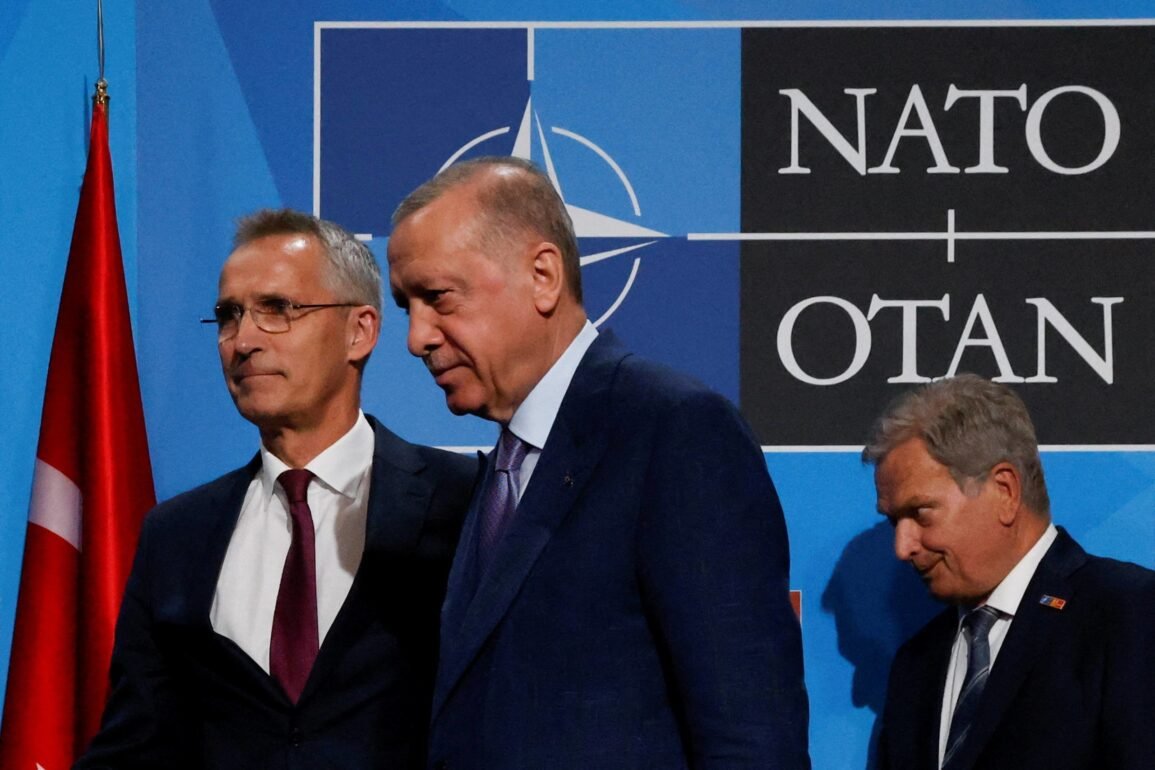The press conference of Sweden’s chief negotiator in the NATO process, Oscar Stenström, was called on short notice. Staff rushed to assemble two tables at NATO headquarters in Brussels. A group of media, mostly Swedish, met to find out if there had been any progress after the resumption of talks between Sweden, Finland and Turkey on Thursday (03.09.2023).
“We see that Turkey has recognized that both Sweden and Finland have taken concrete steps” to address Ankara’s concerns, Stenström said, calling it a “good sign” and stressing that the talks will continue. However, in Brussels, and even more so in Stockholm, the Swedish capital, frustration is growing over Turkey’s blockade of Sweden and Finland’s membership of the NATO defense alliance.
If the government of President Recep Tayyip Erdogan continues with the blockade, “it hurts the unity of NATO, and then we have a real problem,” Anna Wieslander, director for Northern Europe at the Atlantic Council, told DW from Stockholm.
Frustrated allies with Turkey
Erdogan’s government has been resisting calls by the United States and other allies for months to ratify the membership of the Nordic states. Turkey’s reluctance to withdraw its objections, which some see as motivated by Erdogan’s desire to rally his voters ahead of a tough re-election campaign, has turned promises of quick entry for Sweden and Finland into the empty talk.
Both countries have been left in limbo, without a timetable. Government officials in Stockholm indicated that Sweden could not offer much more to convince Turkey. Finland, which has fewer bilateral problems with Turkey, appears to be caught between Turkey and Sweden.
What does Ankara want?
“Under normal circumstances, both Finland and Sweden are countries with which Turkey has traditionally had good relations,” recalls former Turkish diplomat Alper Coskun, who is now a senior fellow at the Carnegie Endowment for International Peace.
Ankara is concerned by what it sees as Sweden’s longstanding support for the Kurdistan Workers’ Party (PKK), which has attacked non-military targets and killed civilians in Turkey. The United States and the European Union consider it a terrorist organization.
Sweden has denied such accusations. But in a trilateral memorandum signed last July, the country pledged to “prevent the activities of the PKK and all other terrorist organizations, as well as the activities of individuals in groups or networks affiliated with and inspired” by this party.
Can NATO exclude members?
“NATO doesn’t have an exclusionary paragraph, and that’s very deliberate,” notes Wieslander of the Atlantic Council. Turkey, with the second-largest army in NATO, an advanced industry and a crucial geographical position at the intersection of Europe and Asia, is clearly a factor to be reckoned with. But “it is important that the United States and other big allies do everything possible to put pressure on Turkey,” he says.
The expert insists that the membership of Sweden and Finland is crucial for the security of NATO in terms of defense and deterrence against the new Russian threat. Coskun, on her side, does not expect any decision before Turkey’s next general election , scheduled for mid-May.





